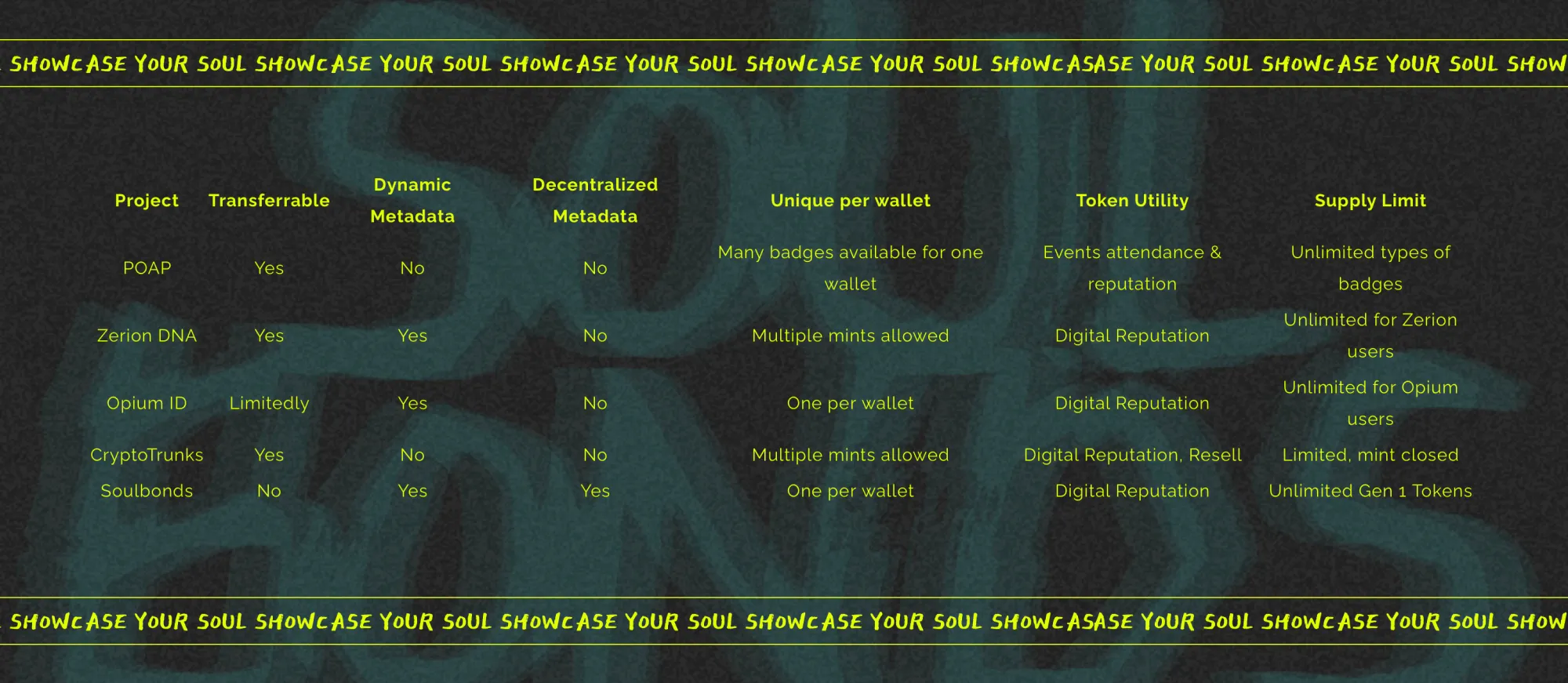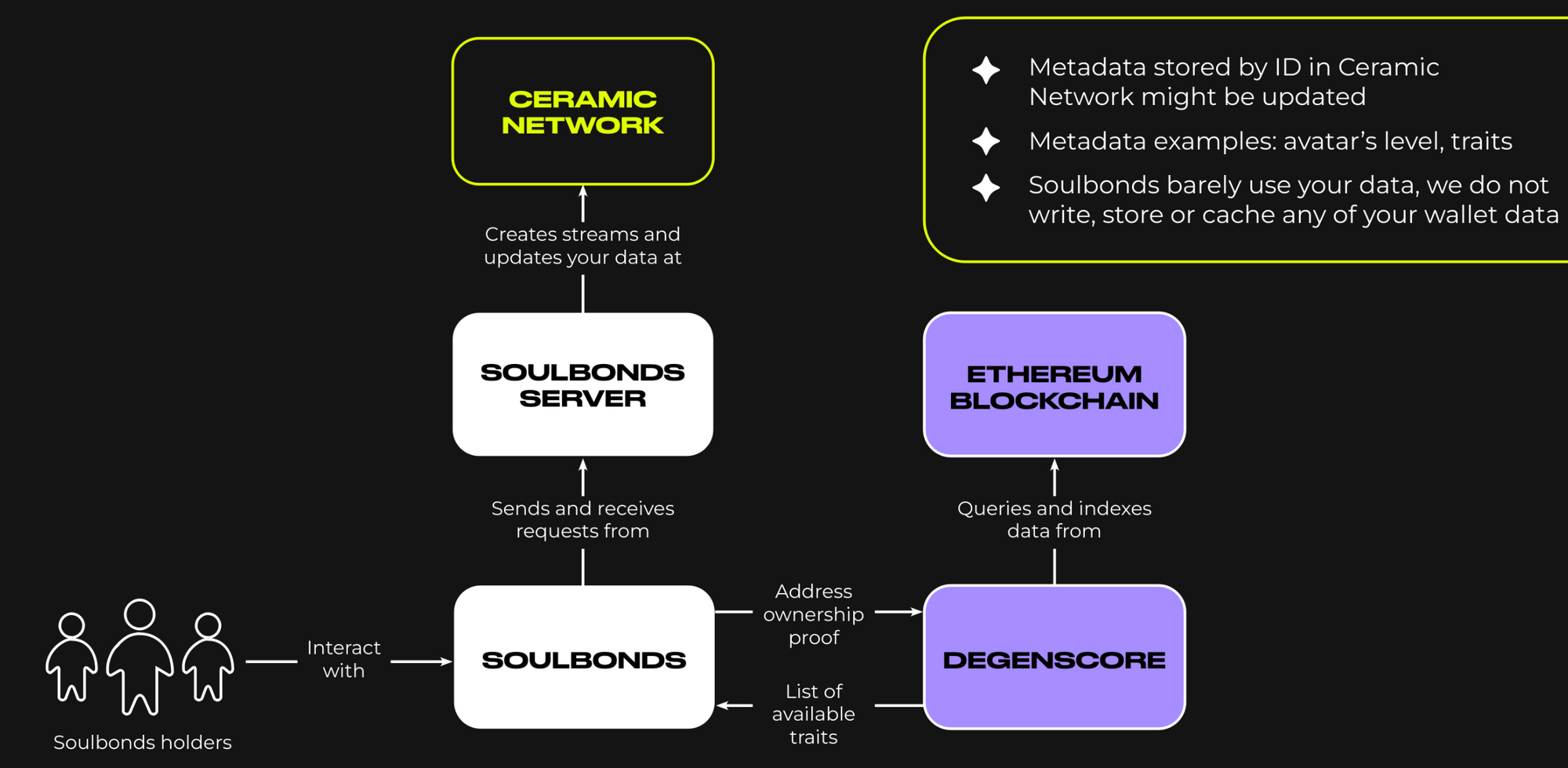Soulbonds Launch Dynamic NFTs on Ceramic
Ceramic enables Soulbonds to store data in a decentralized way without users incurring transaction fees.

Introduction
Soulbonds are evolving NFTs that reflect a Web3 user's on-chain activity. Users can construct, customize and upgrade their Souls (using 220+ hand-drawn traits) to represent adventures they’ve embarked on and tailor the NFT to their unique experience.
"The Soul becomes their reflection in the decentralized web, a true reflection of their digital identity," the Soulbonds teams says.
Soulbonds chose to build on Ceramic to significantly improve usability. With Ceramic, users can apply new traits to their NFTs when they obtain on-chain achievements. Leveraging Ceramic to update Soulbonds metadata avoids all costs related to these data transactions.
"Storing Soulbonds data on Ceramic also offers users a decentralized gateway that allows Soulbonds the same accessibility as IPFS, removing any centralization risk or server damage, and ensures that user content remains permanently available," the Soulbonds team says.
Ultimately, Ceramic enables Soulbonds to store data in a decentralized way without incurring transaction fees for users.
Before creating Soulbonds, the team noticed a lack of popular projects that allow the customization of NFTs. Using a centralized server with APIs was one possible solution to create evolving NFTs. Zerion DNA, for example, offers customizable NFTs but it comes at the cost of losing decentralization. The Soulbonds team also considered another option: upgrading NFTs via on-chain transactions; however, this approach would become prohibitively expensive for users frequently updating their data.
The team chose to build Soulbonds on Ceramic because of its ability to perform off-chain data updates in a decentralized environment.

Ceramic Offers Mutability and Decentralization
NFTs are a set of links between blockchain addresses, NFT metadata, and media content. These links could lead to:
- Centralized servers of the project company (i.e. CryptoKitties)
- Decentralized storage (i.e. Arweave or IPFS)
Decentralized storage solutions like Arweave or IPFS are immutable—this means that changing the stored content is usually impossible for certain use cases, like an ever-evolving NFT. From a security point of view, immutable storage is important, but it limits the number of possible applications (like the ability for NFTs to evolve). On Arweave or IPFS, a change in content means that the link also changes, this requires paying gas fees on blockchains every time. This can be a big issue for NFT projects that allow customization to be done frequently, since they need to use a proxy that will contain the latest version of the NFT.
Ceramic allows decentralized access to the entire history of changes affecting the Soulbonds NFT (including new features), as well as the most recent version of the metadata. With Ceramic, users do not have to pay for updates or sacrifice decentralization.
How Soulbonds Built With Ceramic
For Soulbonds, Ceramic stores a sequential stream of metadata along with links to media stored on IPFS. Using one of the API endpoints, projects can request the current state of the content in the stream. Since Ceramic is decentralized, there is no threat that content owned by users will someday be lost.

In addition to dynamic NFTs, the Soulbonds team continues to push new features, including a leaderboard to rank users via on-chain activity and bootstrapping mechanisms to reward Soulbonds token holders.
Get in Touch
The Soulbonds team completed beta testing and encourages the ecosystem to check them out on these channels.
Join the Discord to learn about how you can build your application on Ceramic!

